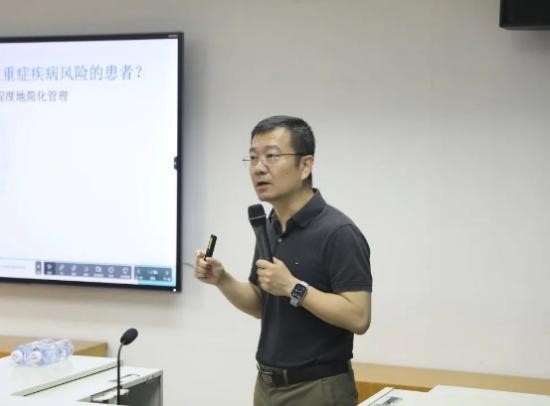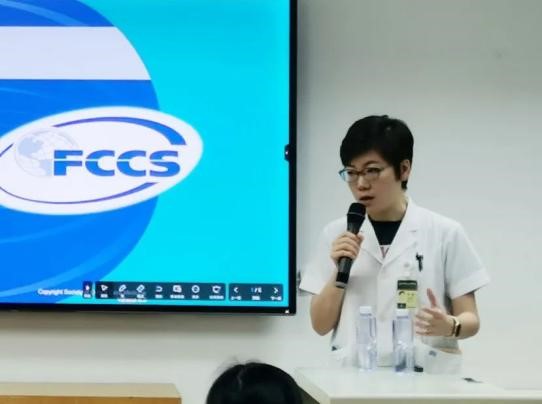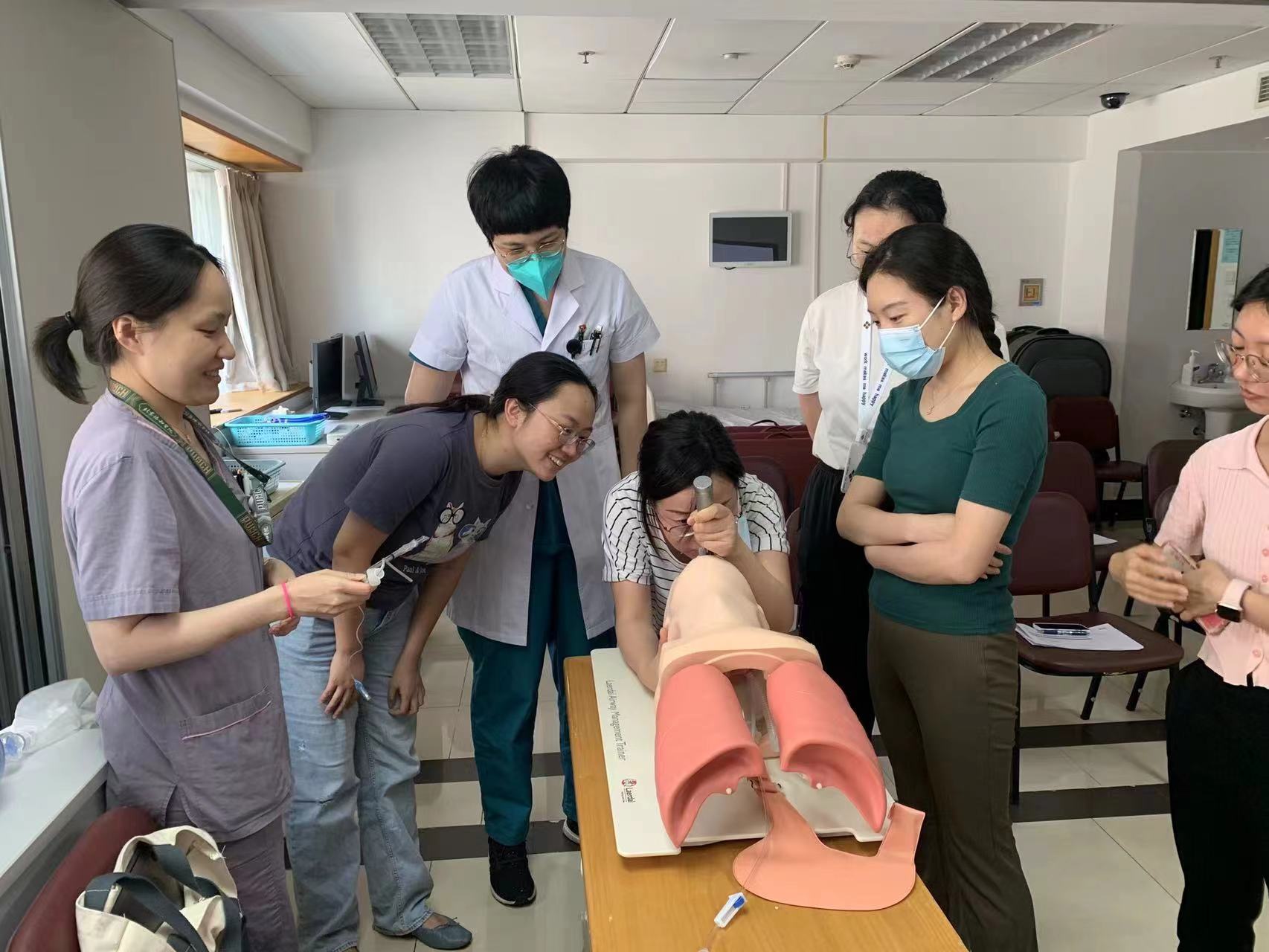Medical quality is the eternal pursuit and lifeline of hospitals. On August 12, 2023, 30 young physicians of PUMCH received a two-day training on the Fundamental Critical Care Support (FCCS), the first attempt at PUMCH. The FCCS course, developed by the Society of Critical Care Medicine in the United States, is a specialized program focusing on the early management, safe transport, and emergency handling of critically ill patients. It aims to rapidly enhance the capabilities of medical staff in early identification and emergency care of critically ill patients through intensive and systematic training within a short period of time.
With funding from the non-profit program of fundamental critical care support under the Society of Critical Care Medicine and the full support of PUMCH Vice President Du Bin as well as the Department of Education and the Clinical Postdoctoral Program Office, Dr. Weng Li, the Director of the Department of Medical Intensive Care Unit (Medical ICU), as one of the first batch of Chinese mentors for the FCCS course, planned and organized this course. The Medical ICU team made painstaking preparations for nearly three months and invited Dr. Xu Jun, and Dr. Xu Shengyong, the Chief Physician and Associate Chief Physician of the Department of Emergency respectively, and Dr. Chen Huan, the Associate Chief Physician of the ICU, to be trainers as well. Young physicians signed up for the training voluntarily and took a selective exam. After that, a total of 30 chief resident physicians, postdoctoral fellows, and other young physicians were selected as the first batch of trainees.




▲The course combined lecturing and workshop
During this training, the trainees systematically learned about the identification of critically ill patients, and the causes, clinical manifestations and treatment procedures of acute respiratory failure, shock, sepsis, trauma, critical neurological disorders, and of other common critical conditions. This fundamental knowledge was further consolidated and deepened through workshops. After the course, the trainees took an online test, and all of them passed the assessment and obtained the FCCS certificate.
“The rich and diverse content was taught in interesting and engaging ways and I have a solid mastery of the knowledge.” “The FCCS course is very practical, and it gives me confidence to deal with critically ill patients in the future!” These are examples of the feedback that trainees provided through the after-class survey. They all profusely praised the course structure, design and content as well as the trainers. They also suggested continuous deepening and expansion of the FCCS course content, trainee grouping based on seniority and specialty, and more workshops with richer content. The trainees proposed such suggestions to substantially improve their capabilities to identify and handle critically ill patients.
Written by Wang Chunyao and Gan Dingzhu
Pictures courtesy of Sun Liang and the Medical ICU
Edited by Gan Dingzhu
Translated by Liu Haiyan
Reviewed by Jiang Wei and Wang Yao
